|
Recently, I went on a powerful retreat put on by the Diocese of Arlington called “Recovering Origins: A Unique Healing Program for Adult Children of Divorce.” While we are all indeed wounded, this retreat focuses on themes relevant specifically to adult children of divorce and attempts to isolate and work through the particular wounds associated with those who have divorced parents. Feeling ignored for many years due to societal pressures and shifting cultural norms, the group on this retreat seemed to breathe a collective sigh of relief: “we are finally being seen.” It would indeed take many pages to delve into the issues that we as adult children of divorce carry, and there has recently been quite a bit of literature on the subject. While this is not the forum to add to this literature, I will say that this retreat, and those participating, left an incredible impression on me. This group of people were quite possibly the most sensitive, respectful, empathetic, faithful, and encouraging group of people I have ever encountered. In all of our discussions about the wounds we carry, there was an air of kindness, understanding, and respect. Had I met these people outside of this retreat, I never would have guessed the depths of the wounds they carry. Through our discussions, one major thing I realized that was common among the group was that they did not recognize in themselves the profound goodness that I saw in them. Through the mess of their parents’ divorces, I sensed a loss of knowledge of their own inherent goodness. What is important about the word inherent? It is important in that it calls on us to remember our divine filiation; that we are first and foremost adopted children of God and we receive our goodness, identity, and worth through this fact alone. God created us in His goodness, not because He needed us, but because He wanted us. This is what is inherent in each of us— this divine filiation, this belonging to the Creator of all creation. This, indeed, is our core identity—but it often gets lost in a child when their parents go through a divorce. This retreat, I believe, helped us to recover this important fact. Don’t we all, in some way or another, feel this loss of our identity, of our inherent goodness? I suspect the answer is yes. If so, how do we move forward? First, I believe we start by recalling—daily if we have to—that our core identity, goodness, and worth is rooted in Jesus Christ through divine filiation. We can do this through spiritual practices such as quiet prayer, Gospel reading, or Adoration. Second, as I learned on the retreat, we must have mercy on ourselves for how we reacted or behaved during our most painful moments. We must not underestimate ourselves nor our feelings, but rather appropriately grieve through them by allowing the Father to walk with us as we do so. And lastly, it is important to allow the Father to gaze at us with His love, and let that love transform our wounds into strengths. In these ways, you will “recover the origin” of your identity as a son or daughter of God, and live fearless, bold, Christ-centered lives, regardless of whether you are an adult child of divorce or not. For more information on the Recovering Origins Retreat and the Life-Giving Wounds ministry, please click here.
0 Comments
In the most beautiful chapter of the best work of one of the greatest Catholic theologians - in my opinion, anyway - Saint Augustine tells the story of his mother, Saint Monica.
Saint Monica was born to a good Christian family but she had little luck in marriage. She was married at a young age to a man named Patricius, and they had three children together. He was a pagan, he was angry, and he was unfaithful. But Monica was patient and merciful. Despite Patricius’s evil ways, she served him with devotion, mercy, and constant prayer. At the end of his life, only one year before he died, her daily prayer and kindness were rewarded and Patricius was baptized into the faith. But Patricius’s conversion did not end Monica’s sorrow. Augustine was seventeen when Patricius died, and his conduct was worse than his father's. He was brilliant, but lazy. He drank excessively, stole, and lived promiscuously. The year his father died, Augustine fathered a son of his own out of wedlock. Despite Monica’s urging, Augustine refused to settle down and get married. Worse still, Augustine rejected his mother’s faith and joined the Manichean cult. But Monica never ceased her kindness and prayers. She followed Augustine as his teaching lead him to Carthage, to Rome, and to Milan. In Milan, Monica met Saint Ambrose, then a bishop. In serving in his church, she came to know Ambrose well, and Ambrose came to understand her sorrow for her son. He comforted her, saying, “Surely the son of so many tears will not perish.” Her prayers were eventually answered. A year before she died, Augustine was baptized. He went on to become one of greatest saints in history. As she lay dying, Monica told her son that her life’s work was complete. “One thing there was, for which I desired to linger a little while in this life, that I might see you a Catholic Christian before I died. God has granted this to me in more than abundance, for I see you his servant, with even earthly happiness held in contempt. What am I doing here?” (pg 223). Saint Monica gives us a powerful example of the influence of intercessory prayer (CCC 2634-2636). Monica did not use words to persuade Augustine to convert. Instead she led by example, living with kindness and praying on his behalf. For thirty-two years she patiently prayed for his conversion, and God rewarded his faithful servant. We are called to do the same. The Letter of James says, “Pray for one another, that you may be healed. The fervent prayer of a righteous person is very powerful” (James 5:16) and Jesus tells us, “Amen, amen, I say to you, whatever you ask the Father in my name he will give you.” (John 16:23). We are all sinners and we all need God’s intercession. But we are not alone. God desires us to pray for our own forgiveness and for the forgiveness of others. That is why we pray “forgive us our trespasses” and not “forgive me my trespasses.” People are difficult. We treat each other with anger, unfaithfulness, and unrepentance. But rather than meet those that harm us with our own shortcomings, let us instead follow Saint Monica’s example and live a life full of kindness and prayer. Pray for God’s help, pray for the forgiveness and conversion of others, and Saint Monica, pray for us. St. Monica’s feast day is celebrated on Monday, August 27, 2018. Two weeks ago, I was walking from my cozy warm apartment in the Northeast part of Washington, D.C. to Union Station to meet up with a friend for dinner. It was 18*F (-7*C) outside and the wind was just starting to pick up. There were forecasts of snow in the next few days. I was bundled up with a wool sweater, socks, jacket, scarf, and gloves. About ten minutes into my walk, I started to regret my decision to walk and wondered if I should’ve called a cab. As I approached Union Station, I could see the Capitol building lit up in the distance. It was there that I saw 8 people lying on the streets completely covered with layers and layers of clothing and blankets. I immediately forgot my own brief and temporary plight. It was a stark and chilling reminder of the great poverty that still exists not only in other countries, but right here in the United States in our capital city. Each January, the Church in the United States recognizes Poverty Awareness Month and takes up Pope Francis' challenge “to live in solidarity with the poor.” Last year, Pope Francis called for the observance of the very first World Day of the Poor. This call was not just for faithful Catholics, but for people of all nationalities, creeds, and socioeconomic backgrounds. As he said in his message for the first World Day of the Poor, “Love has no alibi. Whenever we set out to love as Jesus loved, we have to take the Lord as our example; especially when it comes to loving the poor.” The church and world responded with countless acts of charity and kindness to the poor. Poverty is a massive issue with far too many heartbreaking statistics for us to consider it on only one day each year. It is a concern that needs constant attention and awareness that we can cultivate on a daily basis. Poverty does not simply come in the form of homelessness, but can manifest itself in many different ways. It can be manifested in our neighbor who has to choose between buying prescriptions or groceries, or in the child who cannot focus on school because they have not eaten the proper food they need. It can be manifested in the single mother who cannot afford childcare while she works. Each of us can work towards helping to alleviate poverty. Here at The Catholic University of America, we run a large number of different programs throughout the year that highlight various forms of poverty and ways to help. Twice a year we have massive service days during which we send nearly 900 students to help local organizations that serve the poor. Every week we have twenty opportunities for students to serve the poor across seven different service sites. Some of these include going to soup kitchens or after-school centers and volunteering with the Missionaries of Charity. One of the most highly attended opportunities is a recurring homeless food run in which students take food and supplies to areas of D.C. with large homeless populations. The students do not simply pass out food, but sit and talk with the homeless. They get to know poverty on the most human level possible. They offer their resources, time, and love to those in need. These types of efforts enable us not only to give the poor material goods and the gift of our time, but also help us personally grow. Walking in solidarity with our brothers and sisters and encountering them leaves us transformed. As Pope Francis wrote in Evangelii Gaudium, “This is why I want a Church which is poor and for the poor. They have much to teach us. Not only do they share in the sensus fidei, but in their difficulties they know the suffering Christ. We need to let ourselves be evangelized by them…” Throughout the year, I encourage you to consider participating in or making your own outreach to help those in need—and to bring a friend. Let us allow ourselves to be evangelized by the poor, live in solidarity with them, and work to alleviate their suffering. As St. Vincent Pallotti, the patron of the Catholic Apostolate Center, reminds us, “Remember that the Christian life is one of action; not of speech and daydreams. Let there be few words and many deeds, and let them be done well.” Questions for Reflection: What are some concrete ways you can help alleviate poverty? Has a personal encounter with the poverty of another ever impacted your spiritual life? Preparing for Hurricane Irma has given me a fresh perspective on what matters most. With each alert, evacuation notice, and email telling me that work would be canceled for “x” amount of days, my panic level rose. The uncertainty of the storm’s path falling on my city and then my family’s city kept us all in constant contact reviewing our emergency plans. Social media messages from friend to friend with notes of encouragement and “hurricane hacks” brought us all closer together around the state. Thankfully, I am located in north central Florida, where Hurricane Irma caused less damage than its two landfalls near Naples and The Keys. Prepping my house and selecting the most important items to protect for survival is very humbling. While packing, I thought of my fellow Floridians who evacuated south Florida not knowing if they will have a home to come back to. I thought of those in the Caribbean who received the brunt of Hurricane Irma’s force. I thought of the victims in Texas who battled Hurricane Harvey and continue to cope with its aftermath. These natural disasters remind us of the sanctity of life, what is most important. With the hurricane covering the entire state of Florida, I thought of how small I am—especially in comparison to what God can accomplish. During times of natural disasters, reliance and trust in him increases. One of my neighbors reminded me of the story in Matthew 8:23-27, when Jesus calmed the storm at sea. Jesus told his disciples, “‘Why are you terrified, O you of little faith?’ Then he got up, rebuked the winds and the sea, and there was great calm.” My neighbor told me, “He did it once, and he can do it again!” Her faith was inspiring to me and instantly calmed my nerves. When someone asks, “Where is God in this storm? Why did he create this?” my answer is that God is in those who help others and respond with service and compassion during times of trial and suffering. 1 Corinthians 12 tells us that we are Christ’s body and form individual parts of it. We are the hands and feet of Christ in the world. We may not see the ways God is helping at first because these ways may not necessarily be our ways. I truly believe acts of kindness, such as neighbors checking in on one another and helping one another prepare their homes and families, provide hope during times of fear or suffering. The selfless love of fellow citizens encourages each of us to do what we can for others, in this case, those affected by these recent storms. There are students, faculty, and staff from the University of Florida, where I work, who are ready to jump into action after the storm passes to help others by donating food and clothing, assisting displaced pets, and more. We grieve with those who hurt and find ways to help alleviate their suffering. Rather than filling my thoughts with why this storm has happened, I instead thank God for the blessings he has provided my family and me. Ultimately, God does not cause the storm (or evil), he simply permits the natural way of the world, just as he does with the free will of human beings. Romans 8:28 tells us that God is always working for our good or working to bring about good and turn even a bad situation into a blessing. I am comforted by this thought. During this time of hardship for many in our country, I pray that we may come together and serve one another in order to bring good out of suffering. May we continue to be the hands and feet of Christ to our brothers and sisters. Many hope to journey through Lent having experienced a true transformation in their spiritual life. But sometimes, innocently enough, we don’t take full advantage of our time when we give up something that we have every intention of picking right back up (or indulging in on Sundays). Don’t get me wrong—it can be spiritually edifying and purifying in a lasting way to give up normally enjoyable things (e.g., chocolate, Netflix, alcohol) for just a period. A few years ago though, inspired by centuries-old Catholic theology I learned from some introductory college classes, I tried a different approach to Lent. I found the saints were all talking about Lent as a time to grow in virtue. In the Catholic tradition, a virtue is “an habitual and firm disposition to do the good” (CCC 1803). You might think of virtues as character traits that describe a holy and happy life. Here are some of the “human virtues” that play a prominent role in the Catholic life: The Cardinal Virtues: Prudence, Temperance, Justice, and Fortitude. The Cardinal virtues have a special role in the Catholic tradition, and make possible other important virtues like… The Capital Virtues: Humility, Generosity, Chastity, Meekness, Temperance, Kindness, and Diligence. The seven Capital virtues are meant to counteract the Seven Capital Vices, or ‘Deadly Sins.’ One of the best teachers about virtue is the famous Dominican St. Thomas Aquinas, who lived from 1225-1274. Growing in virtue helps us grow more like Christ, so we can, in St. Thomas’ words “recover the completeness and distinction of mind” that gets lost through sin and vice (Meditations for Lent, 22). Lent is also a great time to focus on developing a virtue that has become weak in your life. St. Thomas Aquinas teaches that we grow in virtue by forming good habits and receiving grace. Habits are important because they tend to shape our overall character and moral decision-making process, and therefore have a role in our relationship with God, others, and our self. Lent is an excellent opportunity to form new habits that we can then carry forward into Easter and beyond. In order to grow in virtue, we need to develop good habits, and we develop habits through repeated actions (See also CCC 1810). Repeated good action --> Good habits --> Virtue It’s a little simplistic here, of course. And although it’s a simple concept, admittedly, it’s not always easy in practice. Building good habits can be difficult because we often find ourselves already stuck in bad habits (vices) that may be tough to break. That’s why giving something up isn’t always enough; we need to replace it with a good action. It also takes focus and developing discipline, which is exactly what we see in the desert experiences found in Scripture as well as the Early Church (CCC 1434). Interestingly, contemporary psychology reinforces to some degree what theologians have understood about habits. Scientists report that it generally takes between 21 and 66 days to turn a new behavior into a habit. So over the forty days, why not consider choosing a Lenten practice that’s not just temporary, but one you hope will stick? Take some time in prayer before Lent begins to identity one specific virtue that will help you draw closer to God. Then, consider some actions can you take toward growing in this virtue. Think in terms of the traditional Lenten practices of prayer, fasting, and almsgiving. For example, fasting can help transform habits associated with our appetite for things, the virtue of temperance. An appetite doesn’t necessarily mean food or drink, though it may. It really covers anything we use to fill our mind and body, like TV and the Internet. Lent is a desert experience where we learn to pursue and subsist on the Word of God rather than our perceived needs. Or maybe you want to grow in the virtue of kindness. Commit to going out of your way to doing one kind action each day by giving of your time, talent, or treasure. Or you might pray for someone you don’t get along with. At its heart, Lent is not a course in self-improvement; it is a disciplined journey toward deeper communion with our crucified and risen Lord Jesus. Ultimately, the help we need to grow in virtue comes from God’s gratuitous gift of grace. We say yes to this journey as we respond by developing habits of holiness. For more resources to help you develop your Lenten habits, please click here. A few weeks ago, I attended a church presentation on Catholic Social Teaching by our deacon, Santiago Molina. The presentation was a series segment focused on family, community, and participation, and I thought it a perfect discussion topic for November and the upcoming “giving” season.
At the start of his presentation, Deacon Molina stated, “We have to respect others and their life; there is a relationship there. We need to be open to life. We are our brother’s keeper even if we don’t agree.” This prolife statement means more than opinions on controversial issues of abortion and death penalty decisions. Deacon Molina’s statement helped me to see my community in a different way. “A good society is a society that makes it easy to be good,” said Peter Kreeft, a professor of philosophy at Boston College. By going beyond ourselves and reaching out to others, we are actively assuming responsibility for those around us. We so often make decisions based on want rather than determining what is societal good. Paul’s letter to the Corinthians (1 Corinthians 13:1-13) comes to mind: “If I speak in human and angelic tongues but do not have love, I am a resounding gong or a clashing cymbal…If I give away everything I own, and if I hand my body over so that I may boast but do not have love, I gain nothing.” Agape, the Greek word for sacrificial love, is something we associate with family, a unit of love. While we begin loving our families selflessly, eventually God calls us to extend that same love to those in our community. “If we are open to the Holy Spirit,” Deacon Molina said, “and you feel you have more love to give, give yourself to your community.” As a recent college graduate, I found Deacon Molina’s words encouraging. Knowing small acts of kindness and any donation of time, talent, and treasure – whatever I can give – make a difference in my immediate community is empowering. “We believe people have a right and a duty to participate in society, seeking together the common good and well-being of all, especially the poor and vulnerable,” states the Sharing Catholic Social Teaching: Challenges and Directions reflections of the U.S. Catholic Bishops. “While public debate in our nation is often divided between those who focus on personal responsibility and those who focus on social responsibilities, our tradition insists that both are necessary.” How we organize our society directly affects human dignity and the capacity of individuals to grow in our communities. While it can be difficult at times to love our neighbor as ourselves, we must remember that we have a loving, social relationship with one another and in the end, we must follow our baptismal call to love. In closing, I wanted to share two videos we watched in the social teaching segment I attended. The first video is of a group of women in Mexico who help complete strangers on a passing train every day. The second video, while it is a foreign advertisement for life insurance, is probably one of the most moving commercials I have seen and truly shows the impact small acts of kindness have on our local community. These videos remind us that we do not need a lot of money or resources to show love for our neighbors, only that our love for others be selfless and put to use the time, talent, and treasures provided to us by God. The Thanksgiving season is a perfect time to think about our neighbors. Here are just a couple ways to think about helping out our neighbors this season: 1. Help out with your local Meals-on-Wheels or church service project 2. Donate your time in serving or cooking food for a shelter or food kitchen 3. Provide items to food pantries 4. Pray about what you are thankful for and remember to thank those around you 5. Invite someone to a Thanksgiving meal who perhaps doesn’t have family in the area or someone to celebrate the holiday with Dana Edwards is a recent graduate of the University of Florida. She currently resides in Tallahassee, Florida where she volunteers as a lector and with communication outreach at her local parish, Good Shepherd Catholic Church. For more information, visit the Catholic Apostolate Center Resource Page on Catholic Social Teaching "The fruit of sacramental life is both personal and ecclesial. For every one of the faithful on the one hand, this fruit is life for God in Christ Jesus; for the Church, on the other, it is an increase in charity and in her mission of witness" (Catechism of the Catholic Church 1134).
I am a liturgical - and sacramental - junky. Whether it be when the organ plays, the incense burns, wooden crosses process or babies cry- I love being part of liturgies! But my love of liturgy does not end with the communal gathering or the symbolic signs. Rather, the reason I love liturgy is that I believe, as Fr. Aidan Kavanagh, OSB, a liturgical theologian, put it, “liturgy is doing the world the way the world was meant to be done.” In the liturgy we are participating in the life of God. We are entering into, and living within, the eternal circulation of the Trinity’s love! But what does that actually mean? It means that we are not simply attending a gathering. We do not show up to another building for another event. It is not a lecture or a show. Rather it is a transformation of ourselves with our God, who is love, so we can go out and witness to that love and act out of it. This is why I love liturgy. It calls me out of myself. It shows me God acting in all things and then sends me out to be his hands and feet. Liturgy connects me to the Body of Christ and reminds me that I am to care for that body. It shows me that the world can be used to glorify God and that the world itself, being God’s creation, is a symbol of His active presence in my life. David Fagerberg, a professor of theology at the University of Notre Dame, illustrates this thought saying, “Water could be a sign of God’s love if I gave a cup of it to someone who is thirsty, but not if I use up on my golf course the water he needs for his vegetable patch.” Liturgy reminds and shows us how to act out of love, not pride; to live out of hope, not despair; and to be guided by compassion, not self interest. Pope Francis affirms that we must be a living Church: a Church for the poor, a Church that acts. He emphasizes that, “Jesus teaches us another way: Go out. Go out and share your testimony, go out and interact with your brothers, go out and share, go out and ask. Become the Word in body as well as spirit.” We encounter, learn and receive Christ in the Liturgy in order that might know Him and act as His Body for the world. This Sunday we must remember that we are participating in something that goes beyond the building, the preaching and the music. We must remember that we are encountering Christ and he is teaching us a way that asks us to share in his mission of building the kingdom of God by acting out of the truths of love, justice, kindness, and peace. Pam Tremblay is a collaborator with the Catholic Apostolate Center. She currently works at St. John's University in Queens, NY as Resident Minister for Social Justice. Editor's Note: This post was originally published on July 30, 2013 Recently the small town in New Jersey that I have been living in for two years while doing service made its way into the national news. Unfortunately it was due to a toxic chemical spill after a train derailed about ¼ of a mile from my house. Within hours of the accident, the three other women that I live with and I were being evacuated from our home. Fortunately two alums of our program kindly opened their doors to us and welcomed us under their roof.
As the days of evacuation turned into weeks, the fun of being somewhere new changed to the reality of being displaced. Not knowing when we would be able to return home, I began, like any good theology student, making theological reflections on our condition within the current liturgical season. Being evacuated, displacement, relying on the kindness of others to welcome us in — a perfect analogy as we celebrate this season of Advent. Feeling a little like Mary and Joseph, I found myself discovering consolation in their story. Under the roof of a stranger, Mary was welcomed in. Under the roof a stranger, our savior was born. Under the roof of a stranger, God was born as man. From under the roof of a stranger, great things can come! There is more than consolation found in the connection of mystery to the season of Advent. The eschaton[1] we reflect on during Advent reminds us of the story that has happened in the past, along with the reality of Christ being present today with our hope for Christ to come again in the future. What is it that the kindness of these “strangers” welcoming me under their roof calls me to? St John of the Cross, a mystic and doctor of our Church, writes in an Advent reflection; “If you want, the virgin will come walking down the road pregnant with the holy, and say, “I need shelter for the night, please take me inside your heart, my time is so close.” Then under the roof of your soul you will witness the sublime intimacy, the divine, the Christ, taking birth forever…” We are called to welcome another under our roof: Christ. Like the alums who welcomed in my housemates and me or like the inn keeper who found room for Mary, Joseph and Jesus, we too are called to open the doors of our hearts and welcome Christ to find a home under the roof of our souls. Today, in the midst of this season of joyful anticipation, we are called to welcome Christ fully into our beings so that when he comes again He might welcome us, in return, under the roof of His Kingdom. If you want, the virgin will come walking down the road pregnant with the holy, and say, “I need shelter for the night, please take me inside your heart, my time is so close.” Then under the roof of your soul you will witness the sublime intimacy, the divine, the Christ, taking birth forever, as she grasps your hand for help, for each of us is the midwife of God, each of us. Yes there, under the dome of your being does creation come into existence eternally, through your womb, dear pilgrim- the sacred womb of your soul, as God grasps our arms for help: for each of us is his beloved servant, never far. If you want, the Virgin will come walking down the street pregnant with Light and sing. ~St. John of the Cross, Advent Reflection Pam Tremblay is the Blog Editor for the Catholic Apostolate Center. [1] Eschaton/eschatology: is the theology that deals with the end of times and the doctrine of the last things. We speak of the eschaton/eschatology in advent when we are reminded of our waiting for Christ in his second come at the end of time. “The fruit of sacramental life is both personal and ecclesial. For every one of the faithful on the one hand, this fruit is life for God in Christ Jesus; for the Church, on the other, it is an increase in charity and in her mission of witness" (Catechism of the Catholic Church 1134).
I am a liturgical - and sacramental - junky. Whether it be when the organ plays, the incense burns, wooden crosses process or babies cry- I love being part of liturgies! But my love of liturgy does not end with the communal gathering or the symbolic signs. Rather, the reason I love liturgy is that I believe, as Fr. Aidan Kavanagh, OSB, a liturgical theologian, put it, “liturgy is doing the world the way the world was meant to be done.” In the liturgy we are participating in the life of God. We are entering into, and living within, the eternal circulation of the Trinity’s love! But what does that actually mean? It means that we are not simply attending a gathering. We do not show up to another building for another event. It is not a lecture or a show. Rather it is a transformation of ourselves with our God, who is love, so we can go out and witness to that love and act out of it. This is why I love liturgy. It calls me out of myself. It shows me God acting in all things and then sends me out to be his hands and feet. Liturgy connects me to the Body of Christ and reminds me that I am to care for that body. It shows me that the world can be used to glorify God and that the world itself, being God’s creation, is a symbol of His active presence in my life. David Fagerberg, a professor of theology at the University of Notre Dame, illustrates this thought saying, “Water could be a sign of God’s love if I gave a cup of it to someone who is thirsty, but not if I use up on my golf course the water he needs for his vegetable patch.” Liturgy reminds and shows us how to act out of love, not pride; to live out of hope, not despair; and to be guided by compassion, not self interest. Pope Francis affirms that we must be a living Church: a Church for the poor, a Church that acts. He emphasizes that, “Jesus teaches us another way: Go out. Go out and share your testimony, go out and interact with your brothers, go out and share, go out and ask. Become the Word in body as well as spirit.” We encounter, learn and receive Christ in the Liturgy in order that might know Him and act as His Body for the world. This Sunday we must remember that we are participating in something that goes beyond the building, the preaching and the music. We must remember that we are encountering Christ and he is teaching us a way that asks us to share in his mission of building the kingdom of God by acting out of the truths of love, justice, kindness, and peace. Pam Tremblay is a collaborator with the Catholic Apostolate Center. She currently works at St. John's University in Queens, NY as Resident Minister for Social Justice. |
Details
Archives
July 2024
Categories
All
|
About |
Media |
© COPYRIGHT 2024 | ALL RIGHTS RESERVED

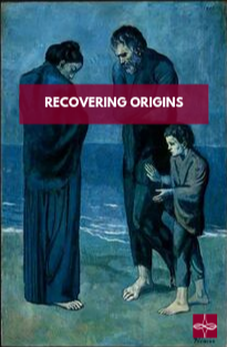

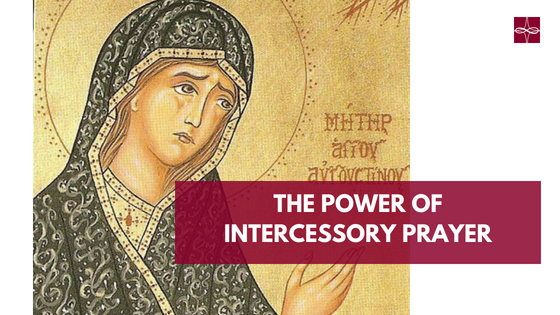

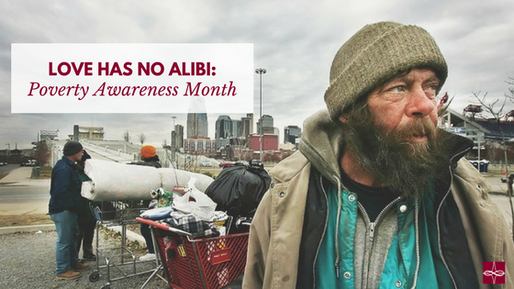

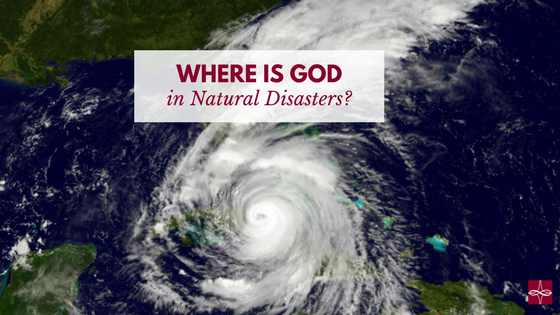

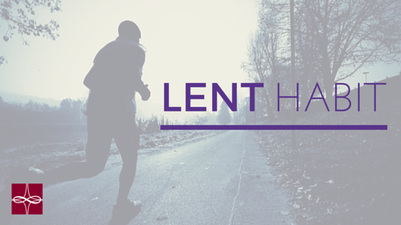

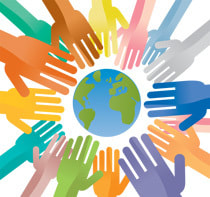
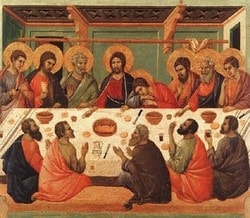

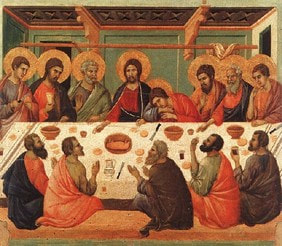
 RSS Feed
RSS Feed